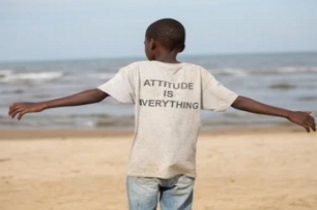Malawi NewsExplore the latest Malawi news and current events, the current state of press freedom in Malawi, including government influence, legal threats, and the role of independent media. Visit this page daily to get all the latest news and current events from Malawi. The main Malawi news headlines are below; however, you can also read news from each African country by using the drop-down menu. |
Malawi News |
Malawi News |
Malawi News | Malawi News |
Explore all about Malawi in a series of profile articles, pictures, videos and images of the country.
More >
|
|

|
Press Freedom in Malawi In Malawi, a nation that transitioned to multiparty democracy in the early 1990s, the story of press freedom is one of both legal promise and persistent practical challenges, playing out across a dynamic media landscape. That landscape includes a range of public and private entities, encompassing radio, television, print, and a growing online presence. Radio remains the most pervasive medium, particularly in rural areas, owing to its accessibility and lower cost. Stations like Zodiak Broadcasting Station (ZBS) and Malawi Broadcasting Corporation (MBC) are household names. Print media, though facing declining readership, includes established newspapers such as The Daily Times and The Nation. The digital sphere is rapidly expanding, with online news portals and social media platforms becoming increasingly influential, especially among urban youth. This diversity, however, doesn't always translate into a level playing field for Malawi news. State-owned media, primarily MBC, often functions as a mouthpiece for the incumbent government, limiting critical reporting and providing disproportionate coverage to the ruling party. This contrasts sharply with the privately owned outlets, which generally strive for greater independence, though they are not immune to pressure. Malawi's Constitution enshrines freedom of expression and the press, laying a strong legal foundation. Furthermore, the Access to Information (ATI) Act, enacted in 2017, was hailed as a significant step forward, empowering journalists and citizens to demand transparency from public institutions. However, the reality on the ground often tells a different story. Despite these legal protections, the practical application of press freedom remains fraught with challenges, revealing a stark contrast between law and practice as journalists in Malawi frequently operate under the shadow of potential retaliation. Cases of censorship, while not always overt, can manifest through subtle pressures, withdrawal of advertising revenue from critical outlets, or self-censorship born out of fear. More alarmingly, instances of harassment and arrests of journalists are not uncommon. Reporters investigating corruption, human rights abuses, or politically sensitive issues have faced charges ranging from defamation and sedition (often under archaic laws) to more recent applications of cybercrime laws. These legal tools are sometimes used to intimidate journalists and stifle critical reporting, creating a chilling effect. In some instances, media houses have faced threats of media shutdowns or license revocation, though outright closures are less common than other forms of pressure. As Malawians increasingly turn to digital platforms for news and discourse, the government's efforts to control information have expanded into this realm. While widespread internet blackouts on the scale seen in some other African nations are not typical in Malawi, the potential use of digital surveillance and the strict enforcement of social media regulations pose significant threats. The Cyber Security and Cyber Crimes Act, for instance, broadens the scope for authorities to monitor online communication and prosecute individuals for content deemed "offensive" or "false," which can easily be weaponised against critical voices. The dichotomy between state-owned and privately owned media is central to understanding press freedom in Malawi. State-owned media (e.g., MBC) is heavily reliant on government funding; as such, their editorial independence is often compromised. They tend to amplify government narratives, often at the expense of diverse viewpoints and investigative journalism. This lack of balance undermines their public service mandate. Privately owned media (e.g., ZBS, Times Group, Kulinji.com), while generally more critical and independent, face their own set of challenges. Economic pressures, limited advertising markets, political interference, and sometimes even physical threats against their staff can compromise their ability to report freely and fairly. They often rely on donor funding for specific projects, which can also influence editorial focus. Compared to its neighbours in Southern Africa, Malawi's press freedom record presents a mixed picture. While it generally fares better than countries with deeply entrenched autocratic regimes or active conflicts, it often lags behind nations like South Africa, which boasts a more robust and constitutionally protected media environment. The challenges faced by Malawian journalists resonate with many other African countries, where colonial-era laws are used to stifle dissent, cybercrime legislation is weaponised, and the economic pressures on independent media, combined with the struggle for state broadcasters to achieve true editorial independence, prevail. Check out this page daily for all the latest independent news from Malawi. |







